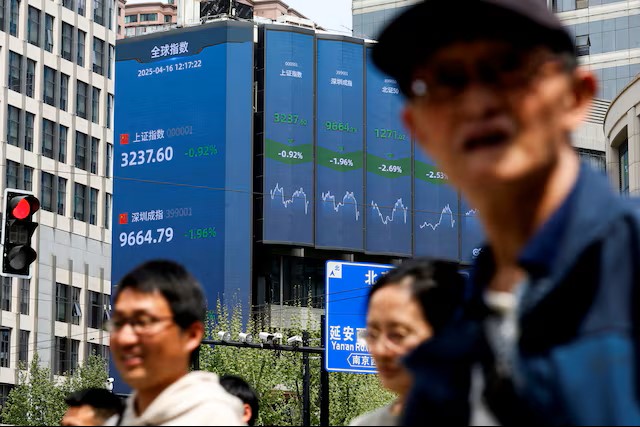Fund manager Yang Tingwu quickly took profits after a sharp rally in Chinese steel and cement stocks in July, which was driven by Beijing’s efforts to curb price wars and reduce excessive industrial production. Despite the initial surge, Yang and many other investors remain doubtful that China’s ambitious plan to pull producers out of a deflationary spiral will succeed. Yang, a vice general manager at Tongheng Investment, highlighted the challenges of reducing excess capacity, noting that shutting factories negatively impacts local tax revenues, employment, and GDP. Additionally, demand pressures from a struggling property market and ongoing trade tensions suggest the price rebound may be temporary.
The rebound in Chinese industrial stocks and commodities, initially sparked by President Xi Jinping’s call to regulate disorderly competition—referred to as “involution”—has shown signs of fading. For example, a steelmakers’ index surged 16% in July but has since softened, while shares of cement producers jumped 23% before pulling back. Similar patterns have been seen in coal, solar energy, and electric car sectors, indicating a broader lack of investor confidence in Beijing’s determination and ability to effectively tackle industrial overcapacity.
Many analysts compare this situation to China’s supply-side reforms in 2016, which supported a two-year stock market uptrend. However, they emphasize that current circumstances differ greatly, with households now more indebted and less confident, a property market in crisis, and unprecedented global trade disruptions. Yuan Yuwei, a hedge fund manager at Water Wisdom Asset Management, described the recent rally as driven mainly by “animal spirits,” or raw investor emotions, expressing skepticism about the sustainability of the gains.
Alexis De Mones, a London-based portfolio manager at Ashmore Group, pointed out that the outcome depends heavily on how the anti-involution policy is implemented and whether it effectively reduces disinflationary pressures or overall industrial output. He noted that if the policy leads to profit growth, it could benefit the stock market, but the current impact remains unclear and ambiguous, reflecting the mixed sentiment among investors and analysts regarding Beijing’s industrial reform efforts.














